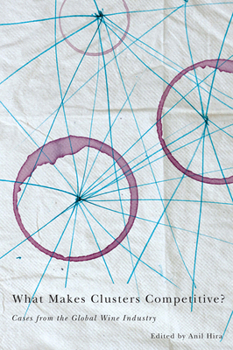What Makes Clusters Competitive?: Cases from the Global Wine Industry
Select Format
Select Condition 
Book Overview
While global competitiveness is increasingly invoked as necessary for economic success stories, there are few answers available about how it can be achieved or maintained. The idea of stimulating industries to spur on economies is often proposed, but industrial policy can be seen as a boondoggle of government spending, and theorists of globalization are doubtful that such efforts can succeed in a world of fragmented supply chains. What Makes Clusters Competitive? tests fundamental theoretical hypotheses about what makes industries competitive in a globalized world by using the wine industries of several countries as case studies: Extremadura (Spain), Tuscany (Italy), South Australia, Chile, and British Columbia (Canada), Taking into account historical and location-specific characteristics, and drawing out policy lessons for other regions that would like to promote their industries, this volume demonstrates the value of applying cluster theory to understand market forces, while also describing the forces underlying the development of the wine industry in a range of different settings. An excellent resource for those interested in what makes industries succeed or struggle, What Makes Clusters Competitive? offers guidance for policymakers and the private sector on how to promote local industries. Contributors include David Aylward, Alexis Bwenge, Sara Daniele, F.J. Mes?as D?az, Christian Felzenstein, Husam Gabreldar, F. Pulido Garc?a, Sarah Giest, Elisa Giuliani, Andy Hira, Mike Howlett, A.F. Pulido Moreno, and Oriana Perrone.
Format:Paperback
Language:English
ISBN:0773542604
ISBN13:9780773542600
Release Date:November 2013
Publisher:McGill-Queen's University Press
Length:280 Pages
Weight:0.90 lbs.
Dimensions:0.7" x 5.9" x 8.9"
Customer Reviews
0 rating





